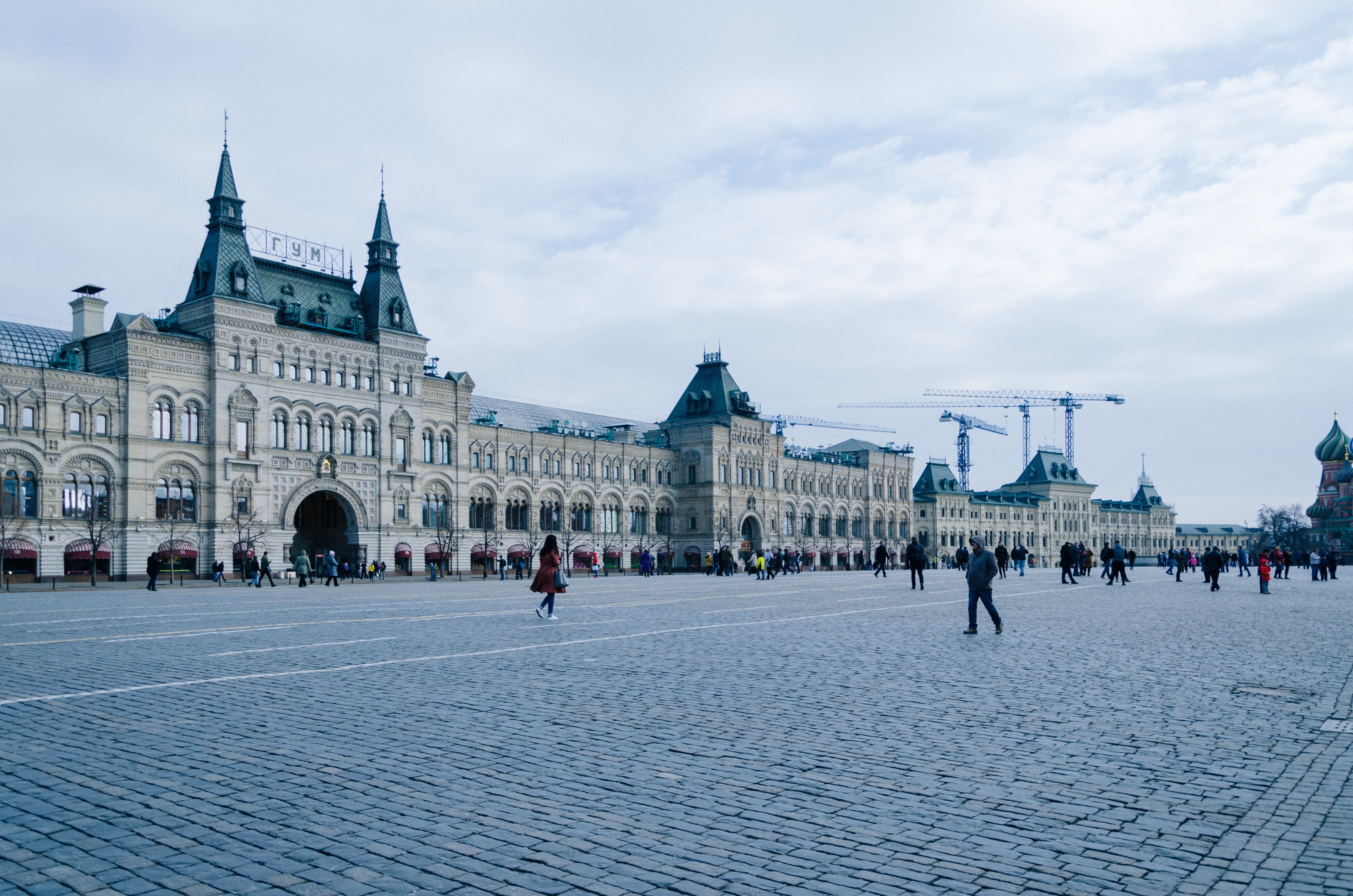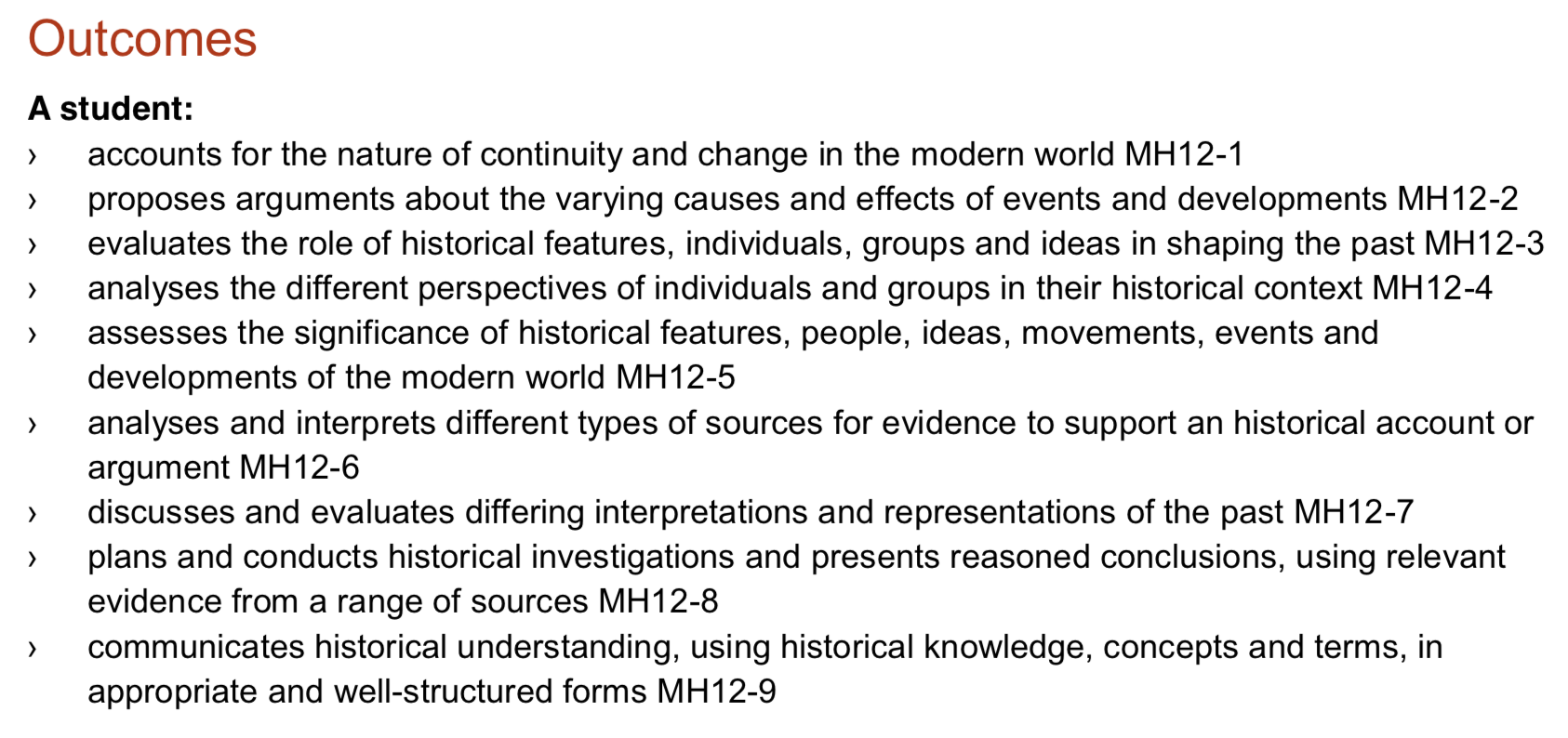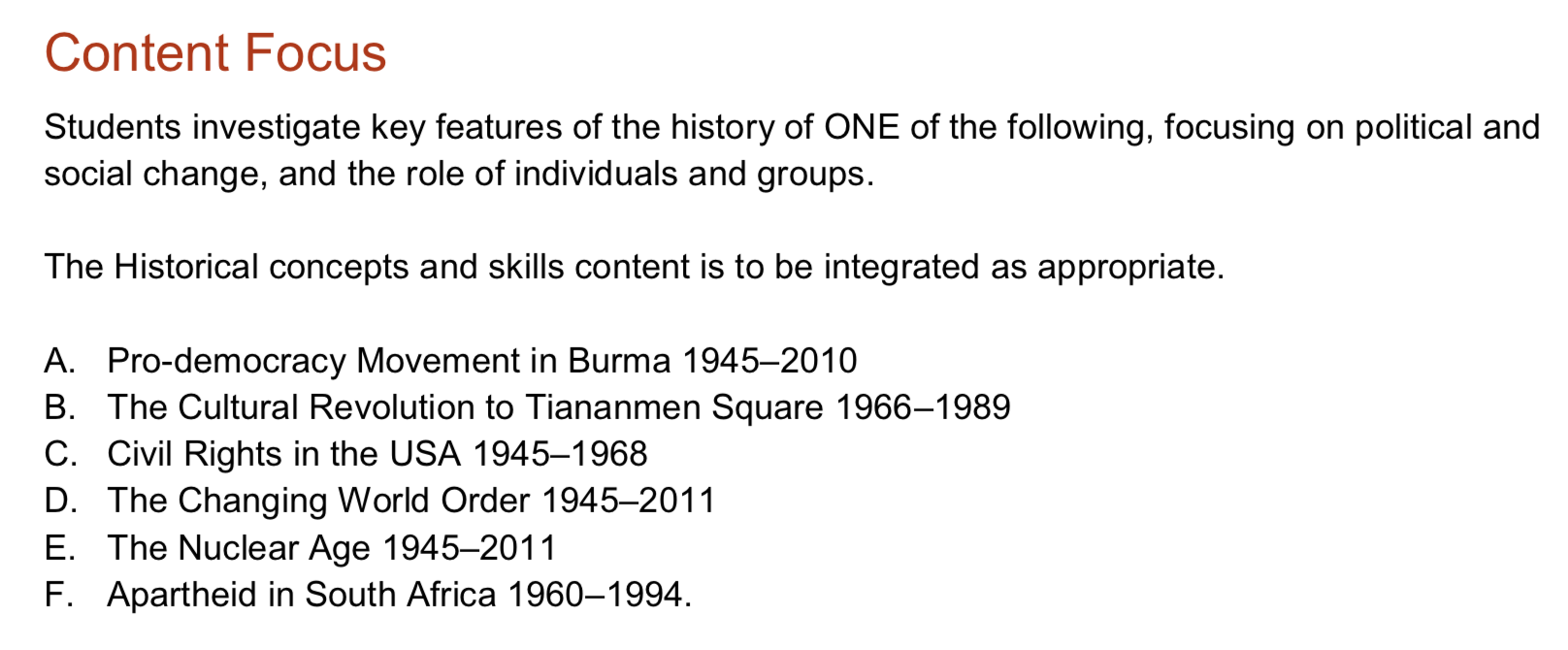
One of the casualties of the Modern History Syllabus change is the Personality study, which has been replaced with a brand-new thematic study, Change in the Modern World.
So, are you wondering what ‘Change in the Modern World’ means and how it will be a part of your HSC?
This article will help break down the new part of the syllabus and get you on track to succeed in Change in the Modern World.
What is ‘Change in the Modern World?’

Classes will spend approximately 30 hours on Change in the Modern World, studying a case study from post-WWII 20th and the 21st centuries.
You will focus on the social, political and cultural changes that took place during these periods, as well as the key individuals and groups. and how they impact today’s world.
Students will ultimately make judgements about the significance of events, people and ideas in the shaping of the modern world.
What will I learn about in ‘Change in the Modern World’?
The historical period that you study will be one from the following list.
It is a requirement that all classes study at least one non-Western topic. This could be from your other HSC Modern History modules, or you might study your non-Western topic in this module. It’s up to your school what topic you study within the modules.

Topic 1: Pro-democracy Movement in Burma 1945–2010
In this topic, students will learn about Burma’s post WWII move for independence and democracy.
They will also cover the establishment of a military dictatorship in 1963, and the growing conflicts between the regime and pro-democracy movements, lasting into the 21st Century.
Topic 2: The Cultural Revolution to Tiananmen Square 1966–1989
This topic covers the Cultural Revolution in China, and the subsequent political, economic and cultural changes.
It includes the study of key individuals and groups, and their changing political roles and standings. The topic concludes with examining the growing demand for reform in China, leading to the Tiananmen Square protests.
Topic 3: Civil Rights in the USA 1945–1968
This topic follows the growth of the Civil Rights Movement from the end of World War two.
It covers key protest tactics of the movement, and key events where these were used. The study also examines the significance of Civil Rights Leaders and addresses the achievements and victories of the movement.
Topic 4: The Changing World Order 1945–2011
This topic focuses on how the world has changed since the end of World War Two. It explores the changing political relations throughout the Cold War and following the dissolution of the USSR.
The topic looks at the emergence of new world superpowers, particularly the United States, and centres of global power, including the role of the United Nations in responding to international issues from 1991 onwards.
Topic 5: The Nuclear Age 1945–2011
In this study, students will learn about the first uses of atomic weapons, and the nuclear testing and atomic threat of the Cold War era.
They will also cover various responses towards nuclear use, the various risks and benefits of the Nuclear Age. Students will also learn about the movement towards nuclear disarmament after the end of the Cold War, continuing into the 21st Century.
Topic 6: Apartheid in South Africa 1960–1994
This study covers the ideology and practice of apartheid in the context of political, economic and cultural issues of the 1960s.
It examines the national resistance to apartheid, particularly focusing on the significance of Nelson Mandela, and the conflicting repression and control of South African governments. The study concludes by addressing factors addressing to the end of apartheid, and the transition into democracy in South Africa.
How will Change in the Modern World be structured?
Like with the core study, the syllabus is split into ‘Survey’ and ‘Focus’ sections.
In the Survey, students will learn relevant social, political and geographic contexts that contribute to the changes examined in the Focus. Think of it as a background for the actual content of the topic.
The Focus is the majority of the study, which covers the causes and effects of significant events, contributions of key people and how these factors impacted the rest of the world. This will be the majority of the facts, figures and events of your topic.
How will I be assessed for Change in the Modern World?
As this is a brand-new study and syllabus, there are changes to the previous layout of the assessment schedule and the HSC Modern History Exam.
Internal Assessment

This applies to the entirety of the new HSC Modern History Course, and so the internal assessing of Change in the Modern World will fit into the above requirements. However your school specifically decides to assess the study within these guidelines is up to them.
External Assessment
Because the new HSC Modern History syllabus hasn’t been examined in an HSC Exam yet, we don’t have past papers to look at.
However, NESA has provided information on what to expect for the Change in the Modern World section of the exam:

Additionally, NESA has provided a Sample HSC Modern History Exam Paper showing what the 2019 Paper will look like.
Take a look at NESA’s HSC Modern History Sample Exam Paper here.
If you’re looking for some practice questions and have completed the sample paper, take a look at our two practice papers for Change in the Modern World here!
There will be one question for each Change in the Modern World Topic, and several parts to each question, one of which will be worth between 10 and 15 marks.
Higher value questions in this section may ask you to provide an in-depth explanation about an aspect of your topic, or to make a judgement about an aspect of your topic and present a supporting historical argument.
Your responses will be marked based on the following criteria:

In summary, you need to have a thorough knowledge of your studied topic and be able to apply the relevant historical information to answer the questions.
Note that the Survey and Focus parts of the syllabus are examinable (so don’t think that you can forget about the background information you learnt at the very beginning of the module!).
For a detailed guide on acing the Change in the Modern World section of the HSC Modern History exam, check out this article!
How do I Get a Band 6 in HSC Modern History: Change in the Modern World?
At the end of Change in the Modern World, students should have a thorough knowledge of their topic, and its impact in shaping history.
You should know the syllabus dot points from both the Survey and Focus, meaning you should have a detailed understanding of the key people, events and ideas that influenced the historical period you studied.
Download the HSC Modern History syllabus here.
In addition, you should be familiar with a variety of primary and secondary sources related to your study, and be able to analyse and interpret these to support historical arguments.
It is also beneficial to be aware of the different perspectives that exist amongst historians regarding the topic, and what arguments and evidence is provided for their claims.
Find out how to write a 10/10 HSC Modern History Source Analysis in this article.
Ultimately, students should also be prepared to make judgements about the historical significance of their studied topic. You will need to form your own arguments, and offer supporting evidence about the significance of key features from the syllabus, and how they impacted both the period studied, and the lasting development of the modern world.
Looking for some extra help with HSC Modern History ?
We have an incredible team of HSC Modern History tutors and mentors who are new HSC syllabus experts!
We can help you master the HSC Modern History syllabus and ace your upcoming HSC Modern assessments with personalised lessons conducted one-on-one in your home or at our state of the art campus in Hornsby!
We’ve supported over 5,000 students over the last 10 years, and on average our students score mark improvements of over 19%!
To find out more and get started with an inspirational HSC Modern History tutor and mentor, get in touch today or give us a ring on 1300 267 888!


